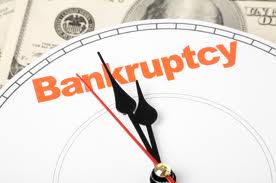 When a bankruptcy case is filed an automatic stay goes into effect. The automatic stay stops all collection efforts on behalf of creditors. Typically debtors file bankruptcy to discharge debt and to protect secured property from repossession or foreclosure. However, bankruptcy can also be used to temporarily stop an eviction.
When a bankruptcy case is filed an automatic stay goes into effect. The automatic stay stops all collection efforts on behalf of creditors. Typically debtors file bankruptcy to discharge debt and to protect secured property from repossession or foreclosure. However, bankruptcy can also be used to temporarily stop an eviction.
I say temporarily because filing bankruptcy is not a long-term solution to preventing eviction but it will delay eviction in order to give the debtor more time to find a new place to live. How much time is gained by filing bankruptcy depends on how quickly the landlord acts. Following a bankruptcy filing, the landlord can file a motion for relief from the automatic stay. Debtors typically have 14 days to respond to these types of motions. If the debtor files a response to the motion before the 14 days expires then the court will set the motion for a hearing. Hearings are usually set several weeks following a response to the motion.
These types of motions are typically resolved by agreement between the parties. As the hearing approaches the debtor’s lawyer can contact the lawyer for the landlord and suggest that the parties agree to lift the stay but in exchange for the agreement the debtor will have some time to make arrangements to move. Typically we agree to ten to fourteen days in these types of agreements. Once the stay is lifted the landlord has to refile a petition for eviction.
Filing bankruptcy delays eviction by a minimum of six weeks and maybe much longer depending on how quickly the landlord files a motion for relief. Filing bankruptcy is a major financial decision and I would never suggest a debtor file bankruptcy to stop an eviction unless they have other debt issues to address as well.
For more information about filing bankruptcy to stop an eviction in north Texas contact a Plano TX bankruptcy lawyer.